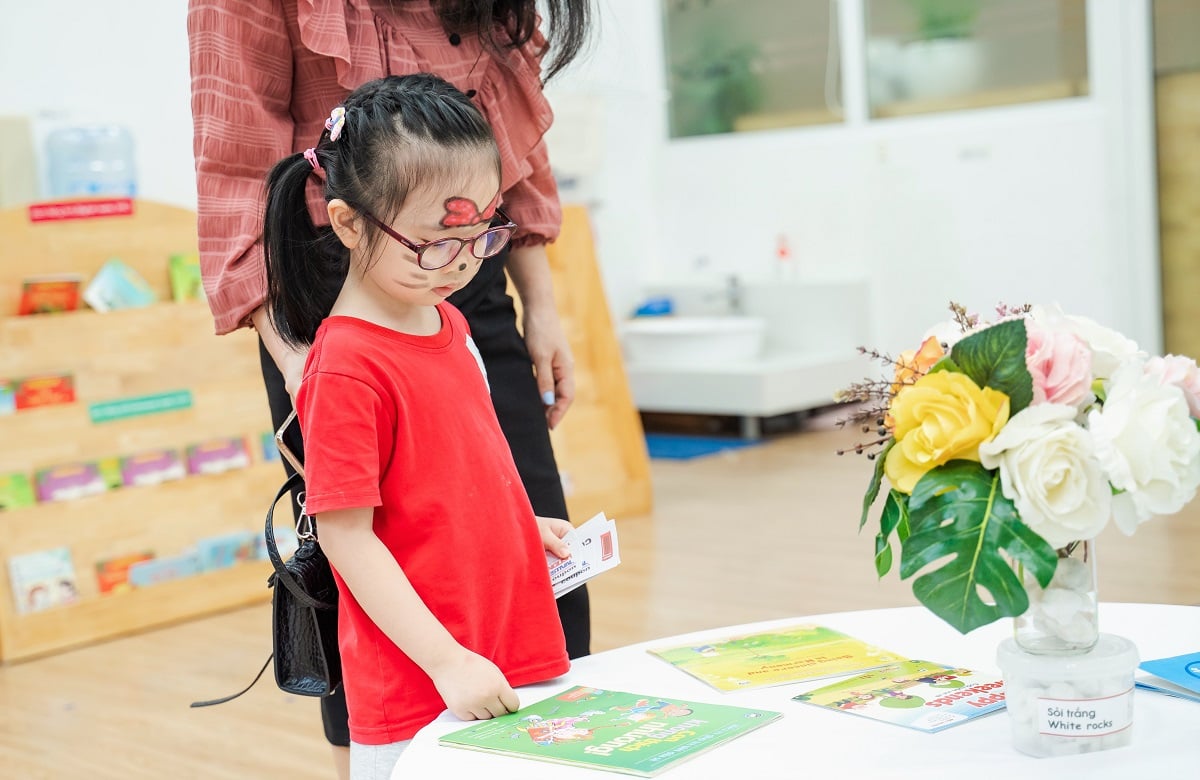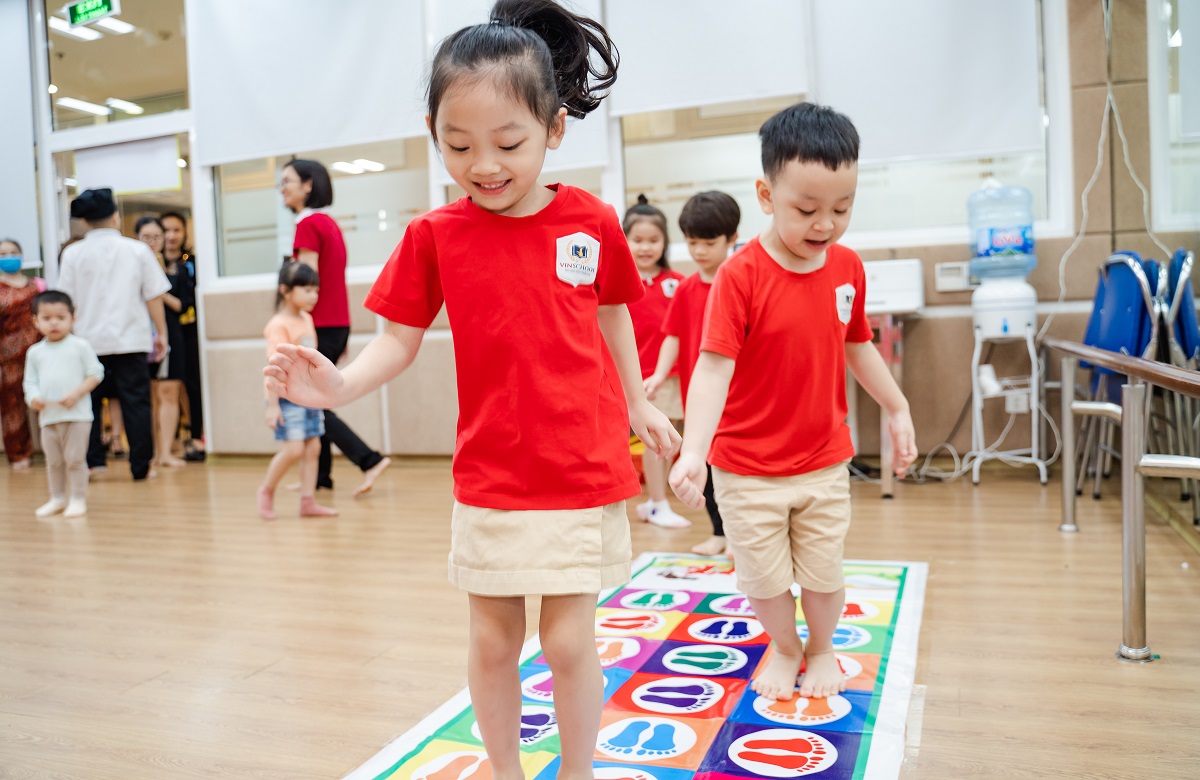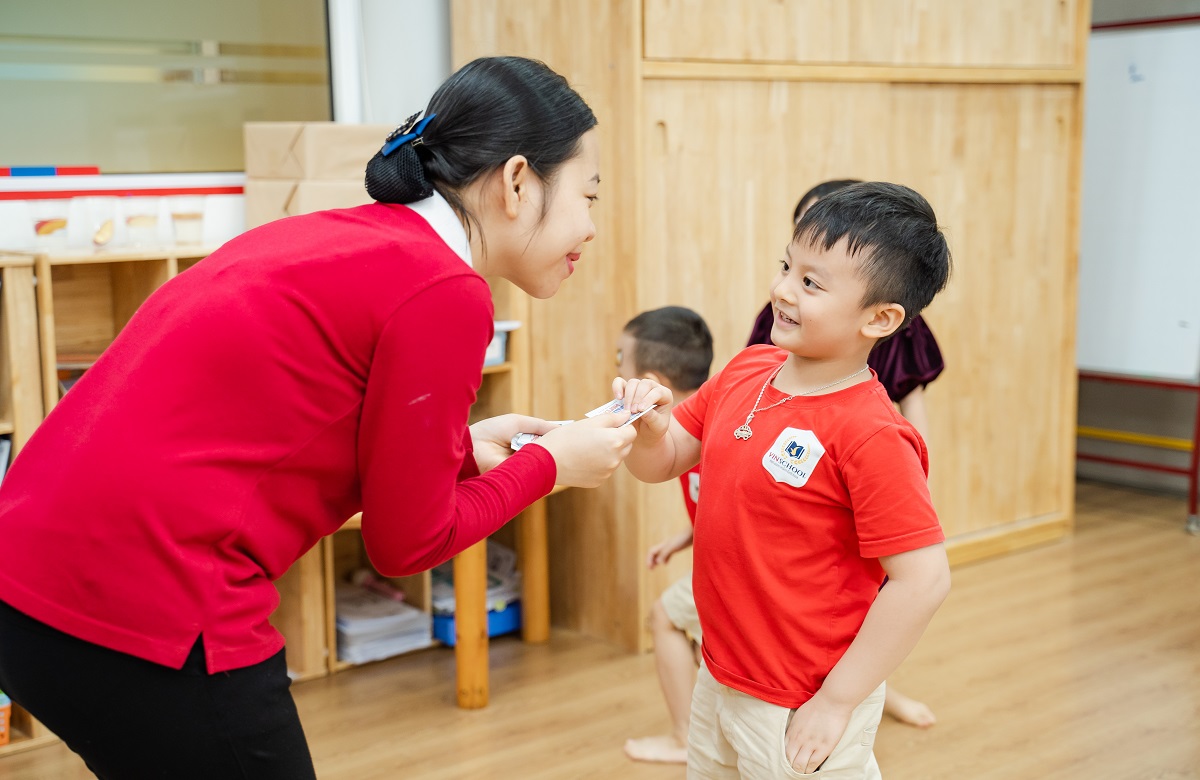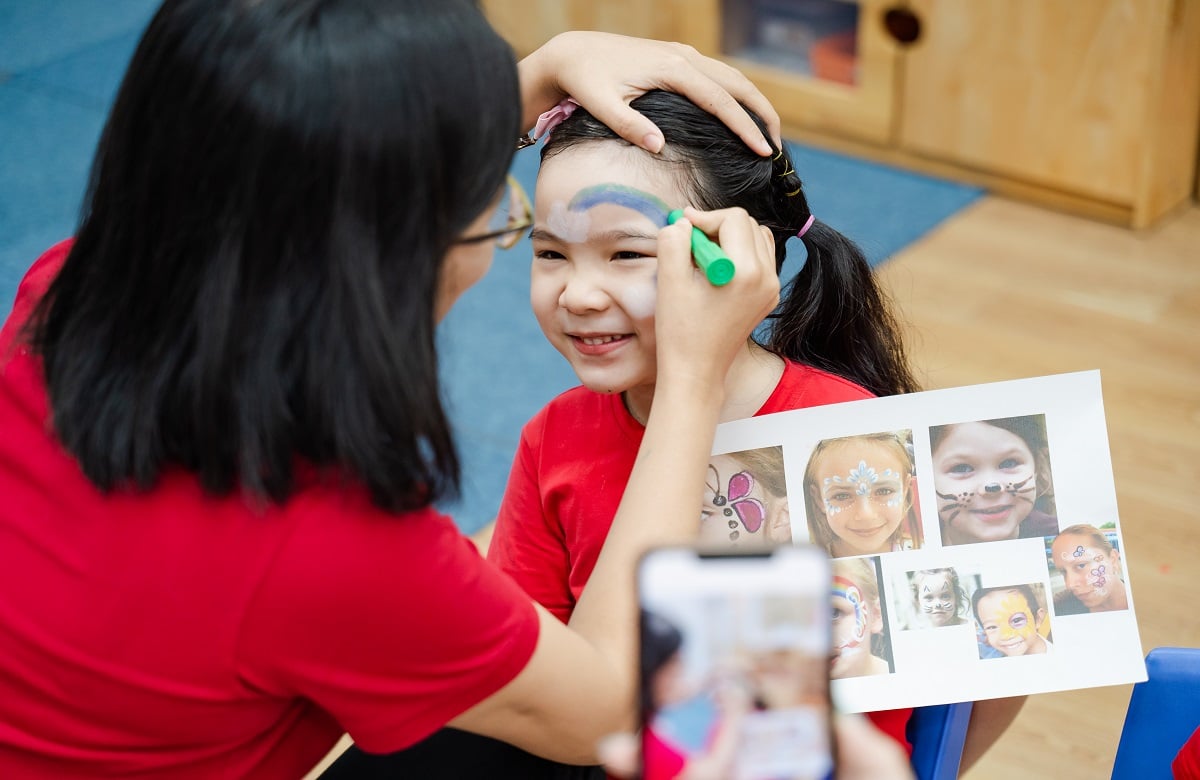Why is financial education essential for kids?
In the thematic unit “Money – Shops & Jobs” within the International Preschool Curriculum (IPC), Vinschool Nguyen Chi Thanh and Vinschool Metropolis Kindergartens integrated financial quotient (FQ) training into lessons through engaging activities such as “Currency: value and identification”, dramatic play “Going to the supermarket”, and “Lucky investment”. The kids learned to distinguish different denominations of the Vietnamese dong, gained an understanding of the value of money through shopping, and shared how they would spend their money in the activity “If I had VND100,000” along with many other interesting experiences. So what is FQ and why is it necessary to provide kids with financial education?
Simply put, FQ means an awareness on the importance of money, good financial management, effective use of money, and a thorough understanding of the principles of cash flow. Financial education helps kids understand what money is and how to wisely spend “the fruits of labor”.

As part of IPC’s thematic unit “Money – Shops & Jobs”, little Vinsers took part in enjoyable activities such as trading coupons for old books or “storytelling” – asking parents to come over to their classes and read English books to them before bedtime to earn coupons (treated as cash in the unit). As the kids managed to earn a coupon, they thought twice before spending it.



In the “Smart consumer” activity, little Vinsers were charged quite a lot of money for relaxing experiences and had to weigh toys against comic books and trading 3 coupons for one thick book against getting three thin books with only 1 coupon. This is very similar to the actual shopping experience they may have in the supermarket: being given VND10,000 and having to decide what to buy. This activity really excited the kids.



So how can parents teach financial education while at home?
- Negotiate with kids and give them appropriate tasks (organizing shoes on the shoe rack, sorting light and dark-colored laundry before mom puts it in the washing machine, tearing one page off the calendar every day, etc.) and the receive some pocket money/coupons/stickers in return at the end of the week or month;
- Display the tracking sheet in the most prominent place of the living room so that kids can tick off the tasks they have done and calculate how much they have earned;
- Create a “savings” book to help kids save “money” and keep track of their spending;
- Set some shopping goals according to kids’ preferences and list the prices of each item;
- For kids over 5 years of age, parents may “call for their investment” and pay them interest. Parents are advised to “negotiate” with kids about using their savings and giving it back to them when they need it. In return, they will get some extra money, called “interest”, for their investment;
- Be patient and always encourage kids as they reach important milestones along the way by giving them an “instant reward”. They will get very excited and work harder to earn more “money”.

FQ is learned, not inborn. Early financial education equips kids with essential knowledge of money and effective financial management skills, thus shortening their path to financial success.






